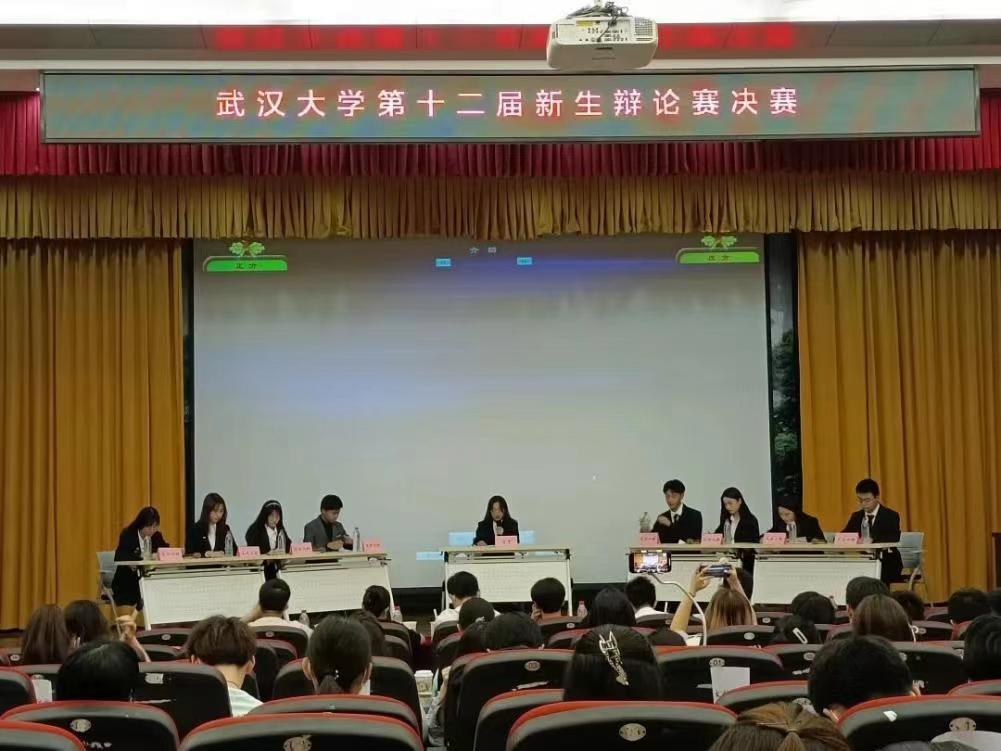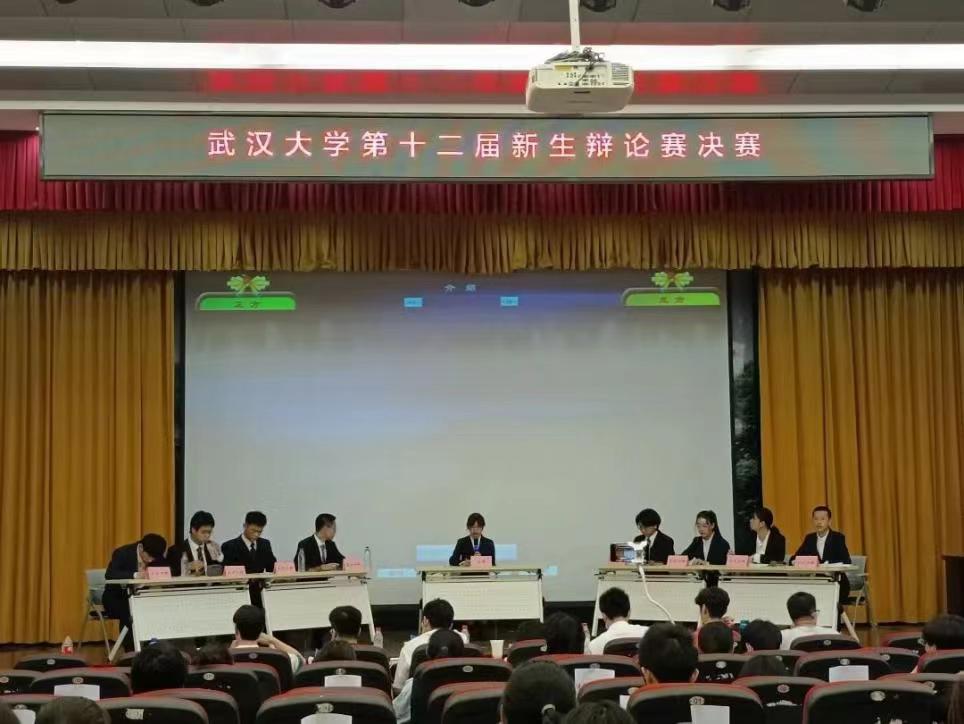On May 8th, the final of WHU’s 12th Freshmen’s Debating Competition was held in No. 5 Teaching Building, which included the battles for the champion and the second runner-up. That Sunday evening witnessed lively discussions about two social topics and a full display of competent debating skills.
The battle for the championship took place between debate teams from the School of Law and the School of Journalism and Communication, representing the affirmative and negative side, respectively. The topic was ‘whether online criticism can bear the results of social piranha’. Social piranha, a Chinese cyberspeak, is often used to describe people who are criticized, rumoured about by individuals or netizens.
In section one, one member from each of the two sides illustrated their main points in a three-minute speech. The affirmative side pointed out the significance of moral criticism online against those deeds and persons that are immoral even if legal. For instance, a famous Chinese debater, Lin Shengwei, cheated on his girlfriend - he cannot be judged by local legislation but only by moral condemnation. The negative side, thereafter, described the current Internet environment consisting of cyber-violence and network onlookers where netizens not only overly blame the perpetrators but also unconsciously subject the victims to secondary victimization. In section two, rebuttals were made. The negative side argued that it was netizens’ misjudgment that mattered most. However, according to the affirmative side, the counterpart in law was also frequent, which was supported by an assertion that 68% of death-related cases in the U.S. are flawed. However, despite this, U.S. criminal law cannot be repealed. This analogy helped their proof make sense. They also mentioned the existence of increasingly rational netizens. “Instead of violation, they always seek truth, according to recent surveys. Therefore, second victimization now occurs much less frequently.” In the following parts, social resuscitation became the new clash of debate. As the affirmative side stated, although there are some inevitable risks of harming the innocent, netizens’ expectations for truth can resuscitate them socially. “But unlike the Internet, the law coupled with strict procedures and evidence is the only way to relieve the harm,” the negative side rebutted.

The championship battle
As to the second runner-up battle, the debate teams from the School of Physics and Technology and the Economics and Management School, representing the affirmative and negative sides respectively, took the stage. The topic was “whether desire locks freedom”. The affirmative side firstly painted the status quo, a world rife with wolf culture, a hostile Internet environment and much other social chaos prohibiting people from doing things freely, and these phenomena are triggered by desire. Meanwhile, the desire being unable to meet people’s needs is to blame. However, what the negative side illustrated was that the desire actually helps break chains on human beings. For example, only when men aspired to flying like birds could they feel the wider freedom and thus tried their best to make breakthroughs, namely, inventing planes.
Afterwards, their discussion went deeper. A theory was introduced by the affirmative side to illuminate that worse oppression will be as more endeavors toward breakthroughs are made. They also admitted that desire can either limit freedom or break chains, but society needs the value from the former more. “Only when we believe the former can we clearly see the suffering that comes with desire. We expect people not to seek things out of their strengths and abilities and not anticipate much from others in order to avoid mutual oppression.”

The second runner-up battle
In the end, the School of Physics and Technology ranked third, while the School of Law won the championship. The judges praised the sixteen debaters’ use of appropriate statistics and examples. “I’ve witnessed your articulation and logical thinking.” Audiences, nearly all of whom were trained debaters or debating fans, sang high praises for their performance, too. The four-hour competition presented a banquet of knowledge, earning them waves of applause.
Photo by the Study Department, Wuhan University Student Union
Edited by Chen Jiaqi, Li Jing, Qin Zehao, Cheng Shiwen, Sylvia, Xi Bingqing